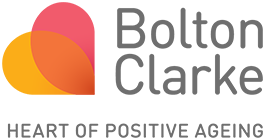Being Your Best
Research priority: Optimising health and wellbeing
Researchers: Judy Lowthian, Maja Green, Liz Robinson, Claudia Meyer, Liz Cyarto, Fleur O’Keefe, with collaborators from Alfred Health, Cabrini Health and Monash Health.
Funding support: Monash Partners Academic Health Science Centre Medical Research Future Fund (MRFF) Rapid Applied Research Translation Fund
Frailty is a condition characterised by increased vulnerability and decline of physical and cognitive reserves, most often affecting older people. This can lead to a cascade of repeated hospitalisations, further decline and ultimately loss of independence. Frailty and pre-frailty are modifiable; and interventions such as physical exercise, cognitive training, social connectiveness and improved nutrition, especially in group settings, can reduce the symptoms of frailty.
Existing health care guidelines to managing frailty are mainly secondary care based, with a focus on the crises of falls, delirium, acute confusion and immobility. Referral to services following hospital discharge have also shown low patient compliance. A more proactive, integrated, person-centred approach to frailty is therefore required.
In this context we set out to develop “Being Your Best”, a program to mitigate the effects of frailty, with older people with lived experience of frailty.
We engaged community partnership groups and clinicians from three large tertiary metropolitan Melbourne hospitals, and nursing staff from Bolton Clarke home-based support services.
Co-design sessions were held with 24 community members. Community members perceived frailty as affecting physical and mental wellbeing. All agreed, without cohesion that physical function, cognitive training, social connection and nutrition is important to address deterioration of frailty and loss of independence. The name of the program Being Your Best and each intervention (Moving Well, Thinking Well, Connecting Well and Eating Well) was very positive and enticing. The majority liked the idea of being connected to a community service in their local area, with others preferring home based interventions. Community members also confirmed that a person- centred holistic approach would work well to ensure adherence and sustainability, as not everybody likes the same things. All members also agreed that with most things being online and older people may not know what services are out there and that they can access them. All community members all agreed that a trusted person, such as GP should make referrals to community clubs or suggest individual interventions, as well as encourage people who may be frail or pre-frail to stay active.
As a consequence, community members developed “Being Your Best” to incorporate a holistic approach, addressing four domains supported by research evidence, to improve health and wellbeing through community- or home- based physical activity, cognitive training, social support and nutritional support.
Being Your Best will be initially piloted with recently hospitalised people aged ≥65 years. The 6-months program will use needs-based assessment and be guided by participant choice to maximise compliance.
Interventions will include: physical mobility and exercise, nutritional support, cognitive stimulation and/or social support; and will be provided through community-based services, together with educational resources and coaching provided by the BCRI research team.
Links to media
Research says frailty can be reduced in older Australians (seniorau.com.au)
Frailty can be reduced in older Australians | OverSixty
Reversing frailty to curtail ‘alarming’ falls increase | Aged Care Insite
What is frailty – and how should it be measured? - Hellocare
Peer-reviewed publications

